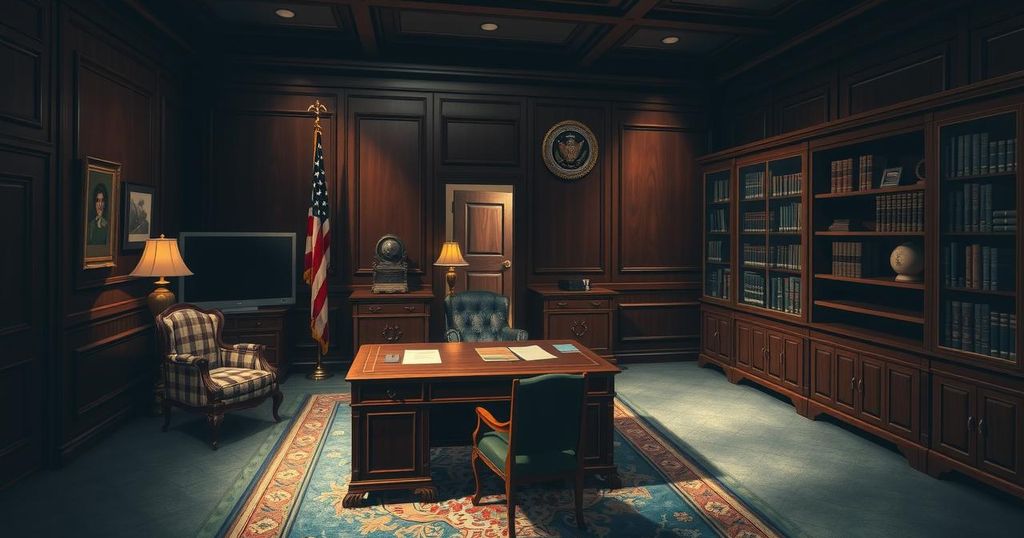Former officials of Democratic Republic of Congo’s ex-President Kabila have been summoned by a military prosecutor amid allegations of Kabila’s support for M23 rebels. President Tshisekedi accuses Kabila’s party of undermining the state’s stability, leading to strained political relations. Kabila has engaged with opposition leaders while firmly denying any ties to the rebels, emphasizing a commitment to national loyalty.
The military prosecutor in the Democratic Republic of Congo has summoned officials from the party of former President Joseph Kabila for questioning amid heightened political tensions related to the activities of Rwanda-backed rebels in the eastern region. The specific reasons for this sudden investigation remain unclear, as stated by Jean Mbuyu, a lawyer for the invited officials and former security advisor to Kabila.
President Felix Tshisekedi, who previously engaged in a power-sharing arrangement with Kabila, has levied accusations against the former president, alleging that he is supporting the M23 rebels, who have recently secured control over two major cities in eastern Congo. Concurrently, Kabila has initiated discussions with opposition figures and civil society actors regarding the political landscape of the country, amidst mounting critiques of Tshisekedi’s handling of the ongoing M23 insurgency.
Approximately ten members of Kabila’s People’s Party for Reconstruction and Democracy received invitations from the military prosecutor’s office, although only three are anticipated to appear for questioning in Kinshasa. Those expected to attend include Aubin Minaku, the party’s vice president and former National Assembly president, as well as Emmanuel Ramazani Shadary, a former interior minister and candidate for the presidency.
Minaku emphasized their willingness to comply with the invitations to clear any doubts regarding their involvement, firmly rejecting any connections to the M23 or other armed factions. He underscored their commitment to a ‘purely Republican approach,’ signifying loyalty to the nation, and stated, “We clearly denounced any illicit presence of foreign forces.”
The recent M23 advances represent a serious escalation in a prolonged conflict, which is intertwined with the aftermath of Rwanda’s 1994 genocide and the ongoing struggle for control over Congo’s extensive mineral wealth. Rwanda has denied supplying weapons and troops to the M23, asserting that its military actions are solely defensive against hostile Congolese forces and militias.
The summons of former President Joseph Kabila’s allies by the military prosecutor underscores rising political tensions in the Democratic Republic of Congo, particularly in the context of the M23 rebel advances. While Kabila distances himself from accusations of supporting the rebels, affirming his party’s loyalty to the nation, the accusations from the current government further complicate the political landscape. This situation highlights the intertwining of regional conflicts with domestic political dynamics.
Original Source: www.usnews.com




